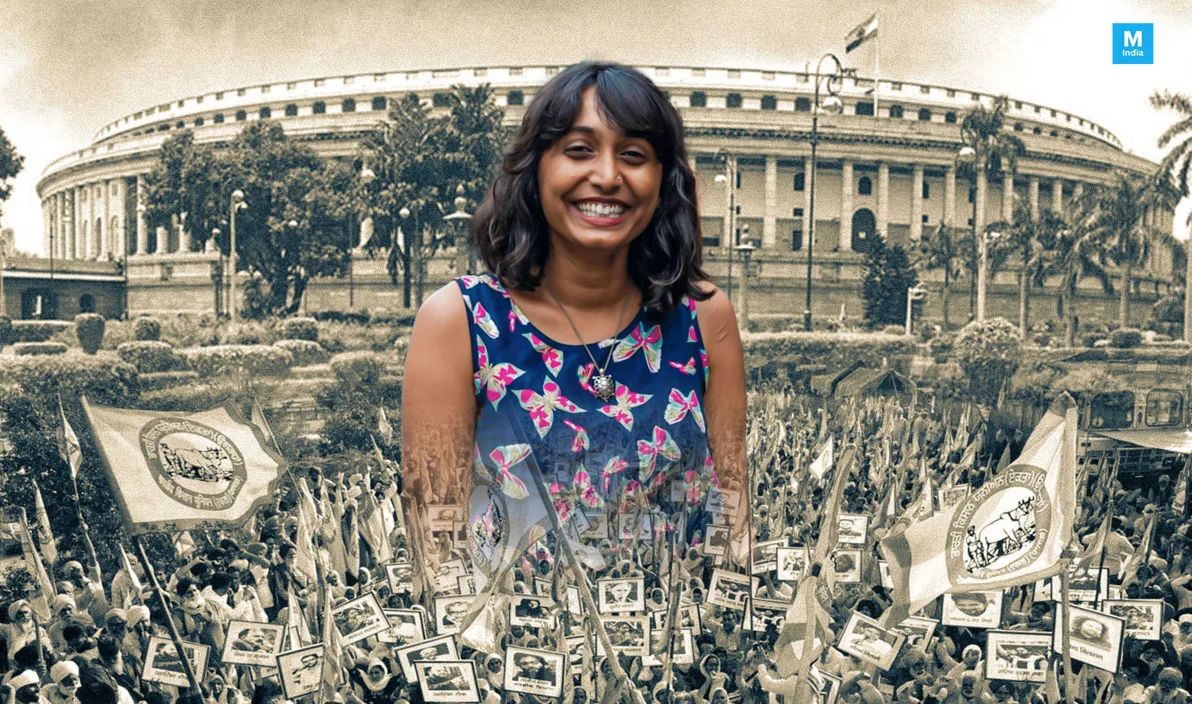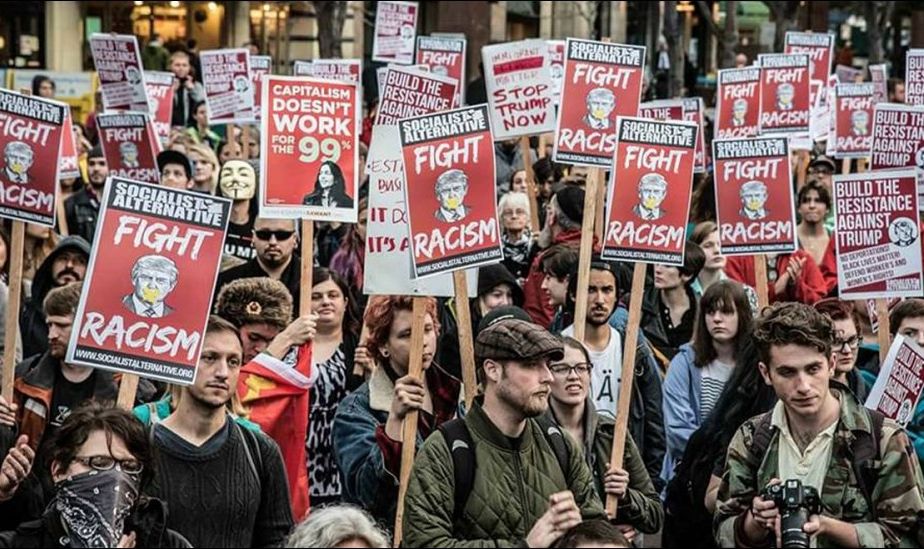Workers’ Movement Must Organise for Struggle and Solidarity
In June, the French departmental and regional elections were marked by a historic abstention: 68% of voters stayed away from the ballot box in the first round. In the 18–24 age group, this abstention even climbs to 87%! This is, of course, an illustration of the crisis of legitimacy that strikes the French political establishment. It also provides a moment rich in lessons in the run up to the presidential elections of 2022.
The polls have systematically been interpreted as signs of the inevitable duel between sitting president Emmanuel Macron and his far right opponent Marine Le Pen, with predictions that the later would come first in the first round only to be defeated in the second by the former.
The results of the regional elections have undermined this analysis. Having led in 6 of the 13 metropolitan regions in the first round of these same elections six years ago, the Rassemblement National of Le Pen led in only one this time, falling from 28% to 19% nationally. Yet its favourite themes dominated the campaign: security and immigration.
These elections take place in the context of the last few months in France, in which there has been the debate on “separatism,” and a new law to “reinforce republican principles,” but which is in effect intended to restrict free speech and is directly primarily against the Muslim community. It has been accompanied by with Islamophobia, and a campaign against “Islamo-leftism” which has reached ridiculous proportions.
The right and the extreme right monopolised the media. This included the nauseating debate between Marine Le Pen and the Minister of the Interior Gérald Darmanin, who did not hesitate to say that Marine Le Pen was too soft on the issue of Islam. The media are daily flooded with this type of talk. The far-right columnist Eric Zemmour can thus pour out all his hatred several times a week on the TV channel CNEWS, in effect participating in the normalisation of racist, sexist and LGBTQI+phobic discourses. He currently leaves open the question of whether he will be a candidate in next year’s presidential election. He is currently credited with 5.5% of voting intentions in opinion polls.
It is not coincidence or the “racism of the average Frenchman” that is fuelling this disgusting climate. Macron has never made any secret of his strategy to be re-elected: it is to take advantage of the total discrediting of the political establishment to enter the second round alongside Marine Le Pen, and then be elected in the name of the “republican front” against the extreme right. This is a dangerous gamble following a five-year period marked by the brutal and bloody repression of social movements and an increase in inequality. The big lesson from these regional and departmental elections is that nothing can be taken for granted in a situation of political instability. A Macron-Le Pen second round is not inevitable.
What role can France Insoumise play?
Between 2009 and 2020, the wealth of French billionaires increased by … 439%! France is thus the country with the second biggest increase, just after China, and far ahead of other countries like the United States (170%) or the United Kingdom (168%). If the SMIC (minimum wage) had risen as fast as the wealth of the billionaires, it would be at 4,805 euros net per month today.
Unsurprisingly, 9 out of 10 French people are in favour of increasing the minimum wage. 8 out of 10 are in favour of restoring the wealth tax that was abolished by Macron, of a tax on crisis profiteers, a major investment plan in public services (especially health), free water for all, and for recognition of burn-out as an work-related disease. 7 out of 10 French people are in favour of lowering the retirement age to 60. 6 out of 10 are in favour of a 4-day working week. These measures are defended by “Avenir en commun,” the program of the left party “France Insoumise” of Jean-Luc Mélenchon.
Today, Mélenchon is at 12% in the polls, well ahead of the social-democratic PS, the Green Party (Greens of Europe-Ecologie Les Verts) and the Communist Party (PCF), which has decided to stand its own candidate this time. In 2012, Jean-Luc Mélenchon went from 3% one year before the election to 11% in the polls; in 2017, from 11% one year before the election to almost 20%, and was just 600,000 votes short of getting to the second round.
These breakthroughs were achieved on the basis of a campaign dynamic that managed to turn many voters into activists. It is not impossible that this could be repeated again, even if the intense anti-Mélenchon media bashing is reaching new heights, and Mélenchon himself has lost credit among a part of his electorate, due to some bad positions. “France Insoumise” is seen much more nowadays as a parliamentary group than as a real party of democratic struggle, even though in the early days of Macron’s term, it conducted dynamic work to stimulate trade union and social struggle.
The remaining hope for Le Pen’s party after its failures in the first round was the election for the Provence-Alpes Cote d’Azur region, which it finally lost in the second round to the candidate of the Gaullist “Republicans.” Here “France Insoumise” called not to vote for the extreme right in the second round, as they did in the other regions, after the group which came third in the first round including greens, social democrats and communists refused to work with them. If FI had stood independently in the first round, it would not have made any fundamental difference to the final result, but FI would have been able to campaign clearly and decisively on its own policies.
France Insoumise’s program has several limitations, notably the desire to remain within the framework of a reformed capitalist system through the “6th Republic.” However, it represents a good basis from which to discuss what is needed for workers and their families.
To counter the threat of abstention and mobilise around social change, France Insoumise will absolutely have to link up with social movements, and get actively involved as a mass organisation. In our view, the 2022 elections and the struggles that will undoubtedly mark the next period should be seen as a step towards the constitution of a broad party of workers and social movements, a party that is involved on an ongoing basis in the organisation of the struggle against the capitalist class.
This will be crucial in trying to reverse the balance of forces, to restore confidence in the collective strength of the working class and to give the perspective for a real change in society, with solidarity and inclusiveness, and which really responds to the needs of the workers and their families.




